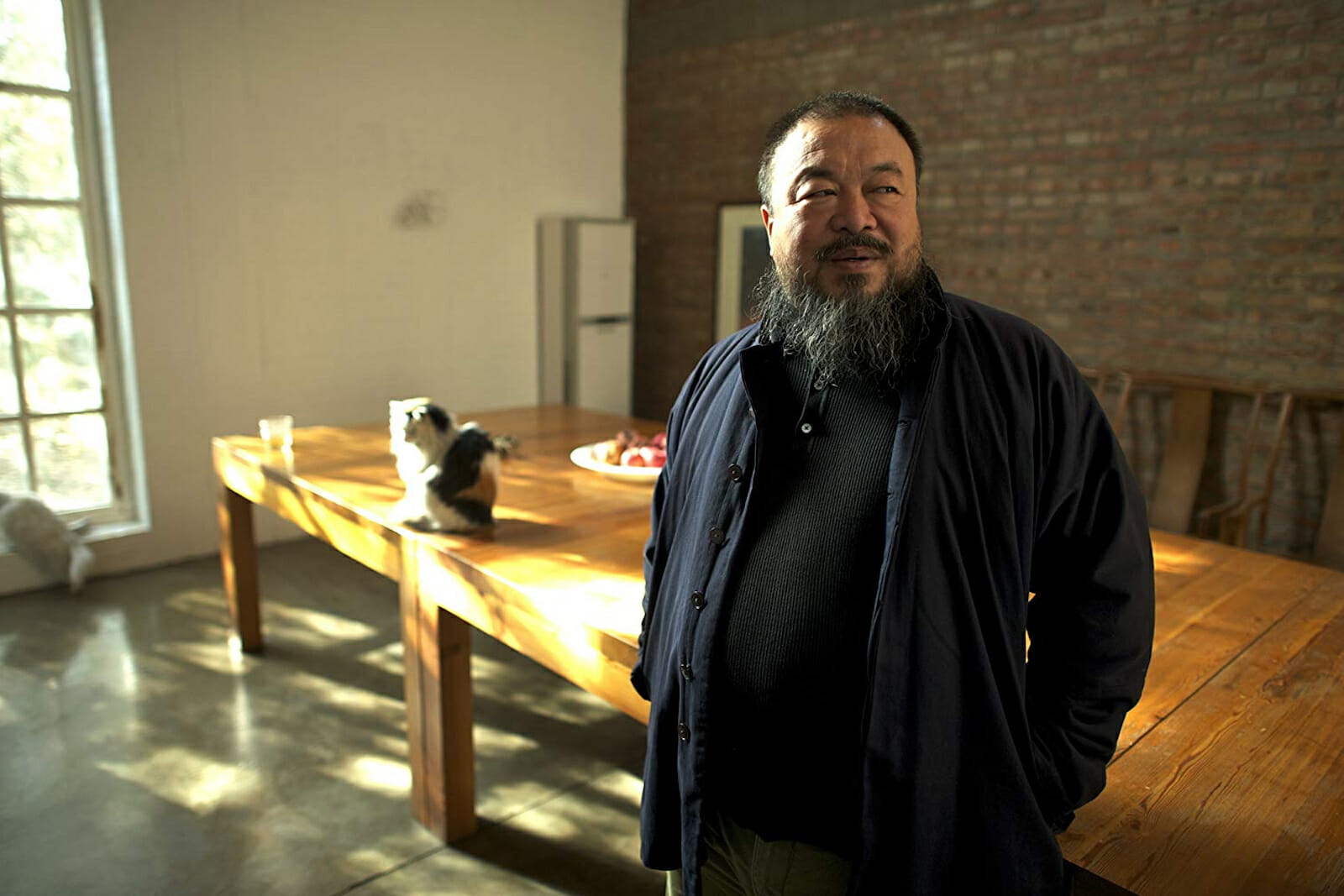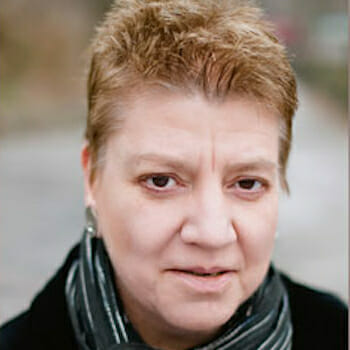
One Hundred Million Porcelain Seeds: Review of ‘Ai Weiwei: Never Sorry’
A few years back I became acquainted with some Chinese grad students working at Teachers College Library’s conservation lab. They were charming, very quick learners, whose fingers were exquisitely adept, and they quickly became amazingly skilled at cleaning and repairing old books. One day the topic of the Cultural Revolution came up—in fact, I think we had found archival photos of the Chinese intellectuals working in rice fields outside of Beijing.
The Cultural Revolution appeared to me to have been a civil war, waged by the government against its citizens. Even those who appeared to have emerged in fine shape continued to suffer psychological pain as a result of their “re-education.” My Chinese friends, to all appearances light-hearted, and not at all prone to self-revelation, gasped at the sight of these images and began to cry. They had been part of the group of intellectuals and artists targeted for “re-education.” They began slowly and reluctantly to tell us about the cruelties they had been subjected to. It was an appalling story, which I never forgot.
In the West we are accustomed to thinking of artists as would be agents of social change. But we don’t generally take them very seriously as political beings – we seldom expect these agents of change to be treated as dangerous enemies of the state, even those who have invited strong offense to viewers (I’m thinking of Piss Christ, for example).
And even if we do, we don’t expect the police to beat them, jail them or destroy their working spaces.
In China, however, the government sends its artists into the mud fields to plant rice endlessly, all of which had been in a day’s work to artists like Ai Weiwei. Should an American policeman exceed authority there are measures which can be taken to investigate and correct and punish. None of these measures are available in China – where the police are beyond the law, since they are the law.
Ai Weiwei is “China’s most famous international artist, and its most outspoken domestic critic.” Working within a lawless legal system, and daily encountering a brutally unaccountable police force, Ai Weiwei not only makes art but conducts investigations into dreadful mass scandals, corruption and government cover ups, exposing that which the government would far rather be kept repressed and hidden. Ai Weiwei is a giant in China – physically imposing, intellectually compelling, – intensely political and a powerful activist. It is hard to think of a counterpart in the West. Possibly Andy Warhol – but his intensely frivolous social persona could never be mapped onto that of Ai Weiwei.
Coca-Cola Vase
No, let me restate—there is a singular thread here. Like Warhol, Ai Weiwei deconstructs and demolishes sacred antique art. In 1997 Ai smashed ancient pots and painted over their original paint with bright primary colors. He committed acts of artistic sacrilege partly to demonstrate that one should not be attached to them or by extension to the past. In one of his most famous deeds Ai Weiwei painted the Coca Cola sign over an antique vase. And Ai Weiwei, like Warhol, has had a powerful effect on other artists in China. Pain, the use of the body as a medium, the “wince” image – a really excruciating image in the film was of a Chinese artist, a cohort of Ai’s, having rice seedlings sewed into his skin where they were expected to grow.
And Ai Weiwei is an artistic and political giant outside China, working despite all efforts to silence him, creating a constant stream of Twitter broadcasts which can’t be hacked or erased fast enough, to keep his fan base alive and to keep them informed, so that they in turn will inform all of us. He Tweets eight hours a day about his well being (since his disappearance and punishment it is a matter of real concern), what he is working on, and the activities of the authorities that attempt to silence him. He has a huge fan base in China and elsewhere, as much for his courage as for the epic works he has created.
Remembering (9000 Children’s Backpacks)
Ai Weiwei is a guerrilla artist who works on a mass visual and audio scale.
In 2008 there was an earthquake in Sichuan, which caused the collapse of schools and the death of over 5,000 students. The schools, which had been constructed with shoddy sub-par materials under government orders, were called the “tofu skin schools.” Meaning, the walls and floors and ceilings of schools were rubbery and permeable and as easily squashed as tofu skins. The government launched a cover up of this scandal. Ai launched an investigation of this governmental cover up and of the student casualties. His investigation aimed to compile a list of students killed in the earthquake by the anniversary.
Ai Weiwei also launched an audio version of the list of names, in which the names of the Sichuanese children who died in the earthquake and the collapse of the schools were spoken aloud by ordinary citizens and actors.
In addition to the name list, Ai Weiwei created a massive installation to commemorate the students who died. He used 9000 brightly colored children’s backpacks mounted on a wall to spell out the sentence “She lived happily for seven years in this world,” a quote from a mother whose child died in the Sichuan earthquake.
Sunflower Seeds at Tate Modern
On a grand scale, intended to be walked on, rolled around on, even slept on, was an exhibit installed on October 2010, at the Tate Modern in London. “The work consists of one hundred million porcelain seeds,” each individually hand-painted by 1,600 Chinese artisans and scattered over a large area of the exhibition hall.”
Its implicit message was a “comment on mass consumption, Chinese industry, famine and collective work.” The exhibit, less controversial than the children’s backpacks, nevertheless invited contemplation critical of the Chinese government and the system. Ai Weiwei is however, not invulnerable. His critique of the Chinese government has left him very open to political punishment. They have taken revenge.
He was subjected to a severe beating. Ai Weiwei was beaten in the head by the police for trying to testify for Tan Zuoren, a fellow investigator of the shoddy construction and student casualties in the earthquake. Ai Weiwei began to get crippling headaches. A doctor in Munich Germany arranged for emergency brain surgery. Demolition: the government almost at the moment it was finished demolished Ai Weiwei’s large and beautiful new studio. He has been subjected to economic attacks. Two bank accounts used by Ai Weiwei were hacked and investigated by state security agents who claimed he was under investigation for “unspecified suspected crimes” and finally tax charges. He was later charged with tax evasion, a total of over 12 million yuan (US $1.85 million).
Disappearance: From 2010- 2011 Ai Weiwei vanished. No one knew where he was or the state of his health. Released after 3 months of constant surveillance and psychological torture, Ai Weiwei emerged from prison refusing to speak to the press. Legal battles: In June of 2012, Ai’s bail was lifted but he faced numerous travel restrictions as a result.
Despite the fact that Ai Weiwei has been consistently cooperative with the authorities, and that repeated investigations into his financial affairs have failed to find any wrongdoing on Ai’s part, his situation remains precarious.

